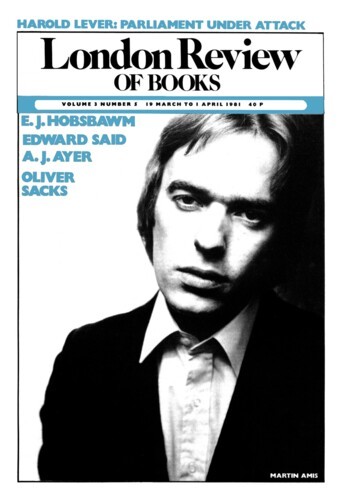Barclay’s War
David Chandler, 19 March 1981
Given the amount of attention that has been lavished on the Napoleonic period in its many aspects, it may seem strange that a full life of Field-Marshal Prince Barclay de Tolly has not appeared before now: but it is not difficult to suggest reasons for this. Barclay had a rather dour and in some ways unattractive personality. He had little of the panache of his rival Russian commander, Prince Bagration, the epitome of dash and colour, whose mortal wounding at Borodino was deeply mourned by Tsar, people and army alike. Instead he was immensely thorough, cautious and intensely professional. Nor did he enjoy the mystique of the veteran Kutusov, detested by the Tsar and with the stigma of Austerlitz on his reputation, but set over Barclay’s head as supreme commander (after Tsar Alexander) as the crisis of the 1812 campaign was reached after the abandonment of Smolensk. Of course, Kutusov’s reputation with posterity owes much to Tolstoy’s portrait in War and Peace, where the drunken old womaniser is depicted as a Russian father-figure of great cunning and latent genius, capable, in some mystically inspired way, of drawing the last ounce of effort out of the stolid, brave moujiks that made up the mass of the Russian armies. This image has been seized upon and endlessly refurbished by the Soviet authorities, for whom Kutusov is indubitably the hero sans reproche of the First Great Patriotic War.

